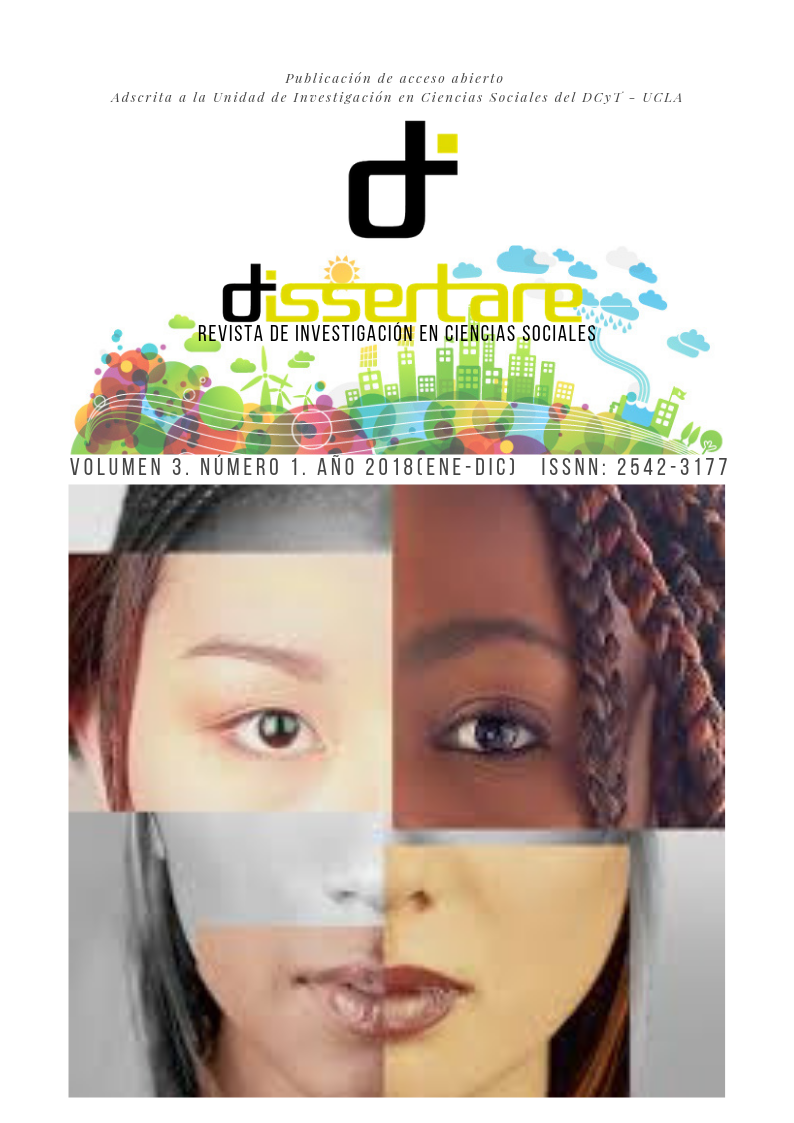El Babel's vertigo and normalizing education
Keywords:
order, power, socialization, normalizing educationAbstract
Being in society implies the construction of spaces and normalizing mechanisms and homogenization of the particular, in terms of the common interest interposed intrinsically in the very act of socialization. The order is erected as the central category of this analytical-interpretative essay, from which it is intended to generate reflection on the role of education as a mechanism of containment of the forces that challenge the social order. For this purpose, Foucault's theory of power (1976) is adopted as a fundamental reference around the capital role of the educational act within the framework of power interdictions and regulations. Education is enthroned as a mechanism that models and produces socially acceptable individuals, according to the scheme of a specific order, which is expressed at all times of the social life of the individual in the suppression of any disturbing element of order. The principle of schooling in which education has derived in contemporaneity has its roots in the paideia Platonic excellent model that assigns to education the responsibility of regulating the first years of life of man, in favor of certain parameters of social order and to the detriment of the vertigo implicit in the chaos.
Downloads
References
Bravo, V. (2004). El mundo es una fábula y otros ensayos. Mérida, Venezuela: Ediciones Puerta del Sol.
Cortázar, J. (2005). Rayuela. Ciudad de México, México: Suma de Letras S.A.
Foucault, M (1976). Vigilar y Castigar. El nacimiento de la prisión. Buenos Aires, Argentina: Siglo XXI Editores.
Heidegger, M. (2000). Carta sobre el humanismo. Madrid, España: Alianza Editorial.
Hobbes, T. (2018). Leviatán. Madrid, España: Alianza Editorial.
La Biblia (1990). Madrid, España: Ediciones Paulinas/Verbo Divino.
Le Goff, J. (1999). La civilización del occidente medieval. Barcelona, España: Editorial Paidos.
Meirieu, P. (1998). Frankenstein Educador. Barcelona, España: Laertes S.A., Editores.
Platón (2012). La República. Caracas, Venezuela: Ediciones El Trébol siglo 21, C.A.
Published
How to Cite
Issue
Section
Derechos del/de autor/es a partir del año de publicación
Esta obra está bajo la licencia:
Creative Commons Reconocimiento-NoComercial-CompartirIgual 4.0 Internacional (CC BY-NC-SA 4.0)
Las opiniones expresadas por los autores no necesariamente reflejan la postura del editor de la publicación ni de la UCLA. Se autoriza la reproducción total o parcial de los textos aquí publicados, siempre y cuando se cite la fuente completa y la dirección electrónica de esta revista. Los autores(as) tienen el derecho de utilizar sus artículos para cualquier propósito siempre y cuando se realice sin fines de lucro. Los autores(as) pueden publicar en internet o cualquier otro medio la versión final aprobada de su trabajo, luego que esta ha sido publicada en esta revista.





